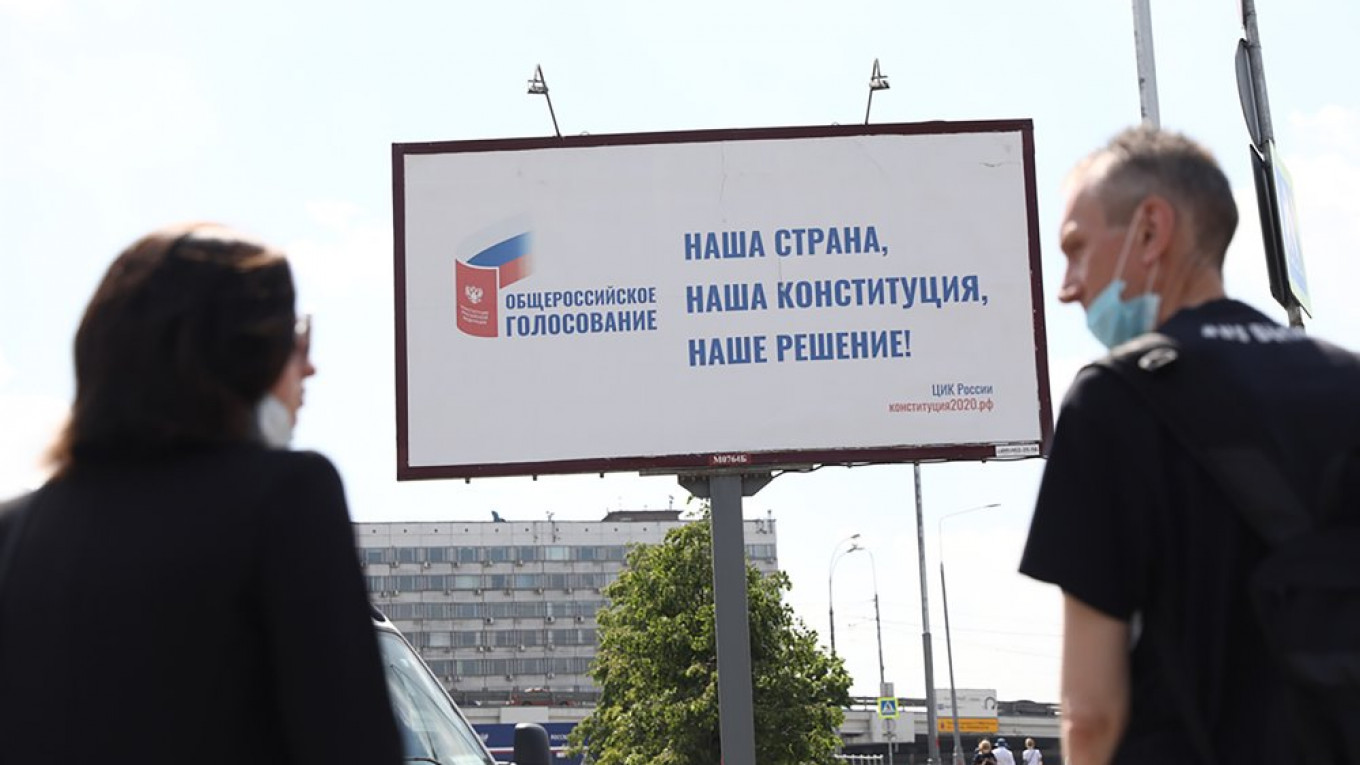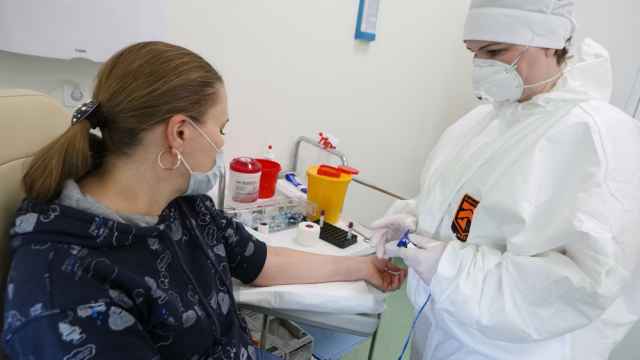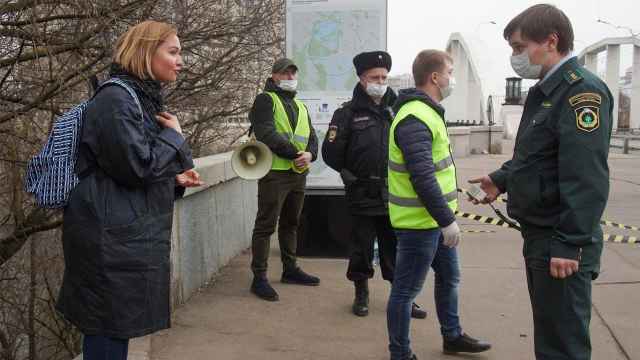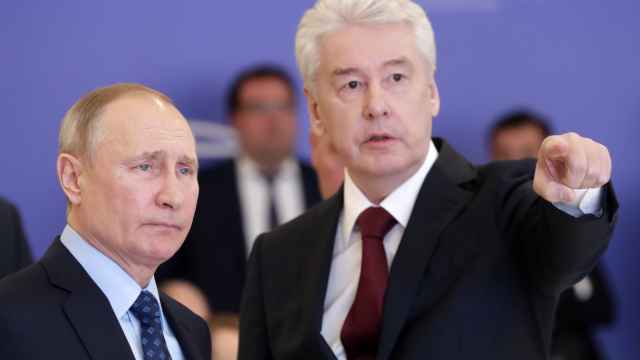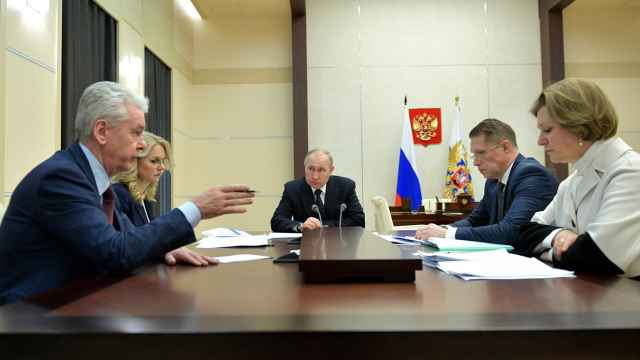In the middle of May, as Moscow passed the peak of its new coronavirus case total and began heading back down the curve toward zero, the city’s mayor Sergei Sobyanin warned that strict restrictions would nonetheless remain in place for the foreseeable future. At the time, new daily cases in Moscow had plateaued at around 4,500 per day.
Sobyanin, who doubles as head of Russia’s coronavirus taskforce, explained that residents of the Russian capital would only be allowed to go outside for walks or exercise when new daily infections reach “tens or hundreds, not thousands.”
Over two weeks later, Moscow continues to see new daily cases in the thousands. The Russian capital recorded just over 2,000 new infections on Monday, while the country saw nearly 9,000 new cases nationwide and over 100 deaths.
Sobyanin, however, has changed his tune.
“I want to congratulate you on another shared victory,” he said in a video address to Muscovites Monday.
From Tuesday, Sobyanin announced, the capital will be ending its digital pass and schedule system for taking walks outside — and within two weeks, bars, restaurants, gyms and hairdressers will all reopen in Russia’s most populous city, which has been on lockdown since March 30.
While Russia isn’t the only country easing coronavirus restrictions as the pandemic begins to ebb among those countries gripped by it early on, it is doing so at a time when its caseload is significantly higher than in others. On Monday, for instance, New Zealand withdrew all of its coronavirus restrictions, save for opening its borders to foreign tourists, only after it announced the country’s final infected patient had fully recovered.
“This appears to be a politically motivated decision to create an illusion that everything is safe,” said Vasily Vlassov, an epidemiologist with Moscow’s Higher School of Economics.
The reason, political analysts said, is that the Kremlin has two key delayed political events on the near horizon — a parade celebrating the 75th anniversary of the World War II victory over Nazi Germany followed by a constitutional referendum that could see President Vladimir Putin remain in office until 2036.
“Everything currently happening has to be looked at through the prism of this vote,” said Konstantin Kalachev, head of the Political Expert Group think tank. “This is all part of the orchestrated drama. First the victory over the coronavirus, then the celebration of the victory over the Nazis, then the culmination.”
Sobyanin’s shift to accommodate the Kremlin’s political plans appears to have taken some strong-arming.
Recent days, in particular, showed discord between the mayor and the president.
Just a day after Sobyanin unveiled a complicated walking schedule for Muscovites from May 28 until at least June 14, Putin announced that the traditional May 9 victory parade would take place on June 24.
Then, a few days later, the president said the constitutional referendum vote would take place on July 1. Sobyanin’s comments to Muscovites the same day appeared to be begrudging.
“Today the president announced the vote on changes to the Constitution. You'd think we have other more pressing matters — the pandemic, economic woes. What's the rush with the vote?” he said. “But unrealized decisions are also a serious problem.”
The next day Prime Minister Mikhail Mishustin called for an investigation into whether Moscow’s quarantine had violated the rights of its residents.
On Monday, Mishustin moved to allow Russians to once again travel abroad, announcing that a government order had been signed allowing them to leave Russia to work, study or take care of sick relatives.
“Initially there was alignment between Sobyanin and the federal government,” said Anna Arutunyan, Senior Russia Analyst with the International Crisis Group. “But what we’ve seen recently is increasing pressure on Sobyanin to ease the lockdown.”
“This was the signal,” Kalachev echoed, referring to Mishustin’s call for an investigation. “And it appears that Sobyanin has fallen into line through gritted teeth.”
Ahead of the vote, the Kremlin is gearing up to ensure that the referendum passes with flying colors to underscore the legitimacy of Putin’s continued rule, Kalachev added. Making sure citizens are in a good mood ahead of the vote is key — and it was Muscovites who were the unhappiest with quarantine measures he noted, pointing to a poll by the independent Levada Center pollster published Monday.
For his part, Alexei Mukhin, head of the Center for Political Information, believes there was less of a struggle between Moscow’s mayor and Russia’s president and more of an orchestrated play — one that could give Putin a boost ahead of July 1.
“They were playing good cop and bad cop,” he said. “And as Hollywood has taught us, good always wins.”
A Message from The Moscow Times:
Dear readers,
We are facing unprecedented challenges. Russia's Prosecutor General's Office has designated The Moscow Times as an "undesirable" organization, criminalizing our work and putting our staff at risk of prosecution. This follows our earlier unjust labeling as a "foreign agent."
These actions are direct attempts to silence independent journalism in Russia. The authorities claim our work "discredits the decisions of the Russian leadership." We see things differently: we strive to provide accurate, unbiased reporting on Russia.
We, the journalists of The Moscow Times, refuse to be silenced. But to continue our work, we need your help.
Your support, no matter how small, makes a world of difference. If you can, please support us monthly starting from just $2. It's quick to set up, and every contribution makes a significant impact.
By supporting The Moscow Times, you're defending open, independent journalism in the face of repression. Thank you for standing with us.
Remind me later.



